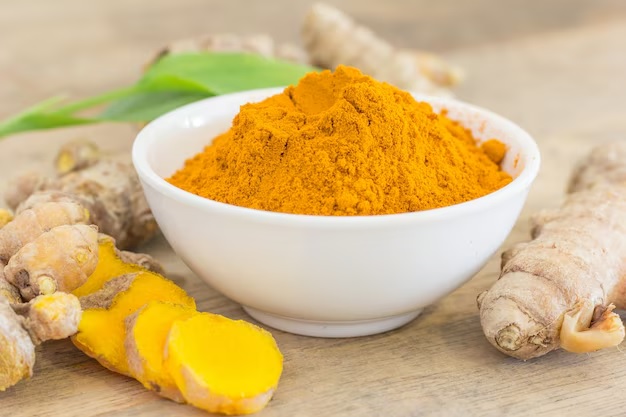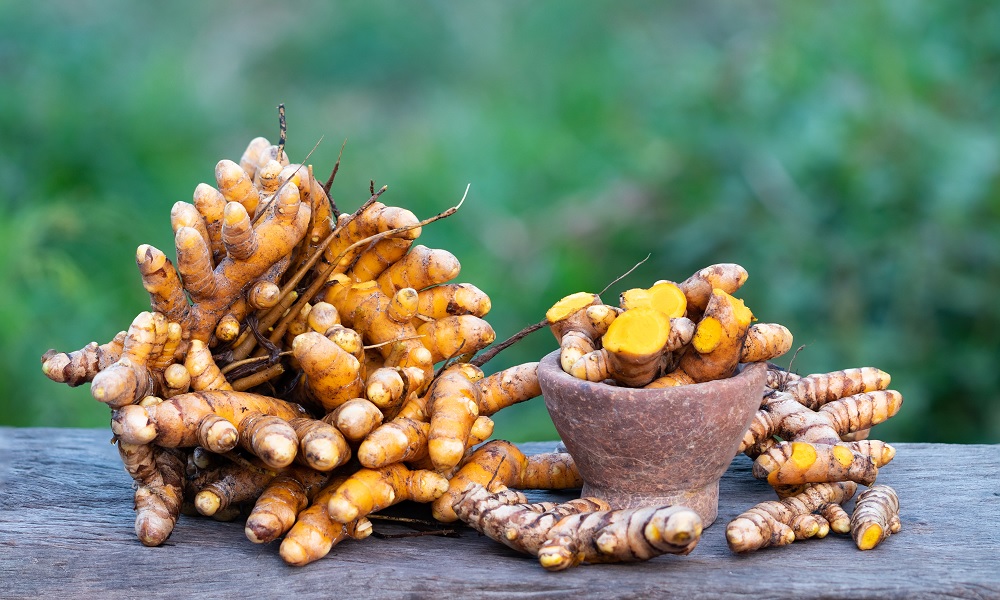Introduction to Turmeric
Turmeric is a bright yellow spice that comes from the root of the Curcuma longa plant. It is often used in cooking, especially in Indian and Asian dishes. But turmeric is not just for flavor—it has many health benefits too. People have used turmeric for thousands of years as a medicine, and science today is proving just how powerful this spice can be.
Table of Contents
What Makes Turmeric Special?
The Main Ingredient: Curcumin
The secret behind turmeric’s power is a compound called curcumin. Curcumin gives turmeric its yellow color and most of its health benefits. Curcumin is a strong antioxidant and helps fight inflammation in the body.
However, curcumin is only about 3% of turmeric by weight, and it doesn’t absorb well in the body. That’s why many people take turmeric supplements with black pepper, which has a compound called piperine that helps the body absorb curcumin better.
Health Benefits of Turmeric
Fights Inflammation
Inflammation is your body’s way of fighting off things that harm it, like bacteria or injuries. But if inflammation lasts too long, it can cause problems like arthritis, heart disease, or even cancer. Turmeric helps reduce chronic inflammation, making it a natural remedy for many long-term health problems.
Powerful Antioxidant
Antioxidants protect your body from free radicals—harmful molecules that can damage your cells and make you age faster. Curcumin in turmeric is a strong antioxidant, which helps your body stay young and healthy.
Supports Brain Health
Curcumin may help increase levels of Brain-Derived Neurotrophic Factor (BDNF), a growth hormone in your brain. Higher BDNF levels can support memory, mood, and learning. Some studies suggest turmeric could help lower the risk of diseases like Alzheimer’s.
Helps with Arthritis Pain
People with arthritis often experience swelling and joint pain. Since turmeric helps reduce inflammation, many people use it to relieve joint pain and stiffness. Some even say turmeric works as well as some pain-relief drugs—without the side effects.
Good for the Heart
Turmeric can improve heart health by helping the lining of your blood vessels work better. It also reduces inflammation and lowers cholesterol. These effects can reduce the risk of heart attacks and strokes.
May Help Prevent Cancer
Some early studies show that turmeric can slow the growth of cancer cells, especially in the breast, colon, stomach, and skin. More research is needed, but it’s a promising natural tool in cancer prevention.
Supports Digestive Health
Turmeric can help with digestion, especially for people with bloating or gas. It may also help people with Irritable Bowel Syndrome (IBS) or other stomach problems feel better.
Boosts Mood and Mental Health
Turmeric may also help people with depression or anxiety. Curcumin can boost brain chemicals like serotonin and dopamine, which make you feel happy. Some studies show that turmeric supplements worked as well as some antidepressants.
How to Use Turmeric

Cooking with Turmeric
The easiest way to use turmeric is to add it to your food. It works well in:
- Curries
- Soups
- Rice dishes
- Scrambled eggs
- Smoothies
- Teas (Golden Milk)
Start with a small amount, like ¼ to ½ teaspoon, and increase as you get used to the taste.
Turmeric Tea or Golden Milk
Turmeric tea is made by boiling turmeric with water and sometimes adding ginger, honey, and lemon. Golden milk is a mix of turmeric with warm milk (plant-based or regular), a little black pepper, and other spices like cinnamon.
Turmeric Supplements
If you want more turmeric for its health benefits, you can take it as a capsule or tablet. Look for supplements that also contain black pepper extract or piperine to help your body absorb the curcumin better.
How Much Turmeric Should You Take?
For general health, many experts suggest taking 500 to 1000 mg of curcumin per day. If you’re using turmeric powder, this equals about 1 to 2 teaspoons daily.
Always talk to your doctor before starting any new supplement, especially if you’re pregnant, breastfeeding, or taking other medications.
Possible Side Effects of Turmeric
Turmeric is safe for most people when used in food. But high doses from supplements may cause:
- Upset stomach
- Nausea
- Dizziness
- Diarrhea
It can also thin the blood, so if you’re taking blood thinners or have a surgery planned, check with your doctor first.
Fun Facts About Turmeric
- In India, turmeric is called “Haldi” and is used in weddings, beauty treatments, and religious rituals.
- Turmeric is often used as a natural dye because of its bright yellow color.
- In traditional Chinese and Ayurvedic medicine, turmeric has been used for liver problems, skin diseases, and wounds for centuries.
Tips for Buying Turmeric
Choosing Good Quality
- Look for bright yellow or orange powder—it should not be dull or faded.
- Choose organic turmeric if possible to avoid chemicals and pesticides.
- If buying a supplement, check for standardized curcumin (around 95%) and added piperine for better absorption.
Storing Turmeric
- Keep turmeric powder in a cool, dry place, away from sunlight.
- Store it in an airtight container to keep its flavor and benefits fresh.
Turmeric in Beauty and Skincare
Turmeric isn’t just for eating—it’s great for your skin too. It has anti-inflammatory and antibacterial properties, making it useful for:
- Acne
- Dark spots
- Redness
- Brightening the skin
DIY Face Mask Recipe
Ingredients:
- 1 tsp turmeric powder
- 1 tbsp yogurt or honey
- A few drops of lemon juice
Instructions:
- Mix the ingredients into a smooth paste.
- Apply to your face.
- Leave on for 10–15 minutes.
- Wash off with warm water.
Use it once or twice a week for best results—but be careful, turmeric can stain your skin or clothes!
Final Thoughts: Should You Add Turmeric to Your Life?
Turmeric is more than just a spice—it’s a natural medicine with centuries of use and growing support from modern science. From fighting inflammation and easing pain to helping your brain and heart, turmeric has something to offer everyone.
You can enjoy turmeric in your food, drink it in tea, or take it as a supplement. Just remember to start small and talk to your doctor if you have any health conditions or are on medication.
So yes, it’s worth adding turmeric to your daily life. It’s simple, natural, and powerful—just the way healing should be.










